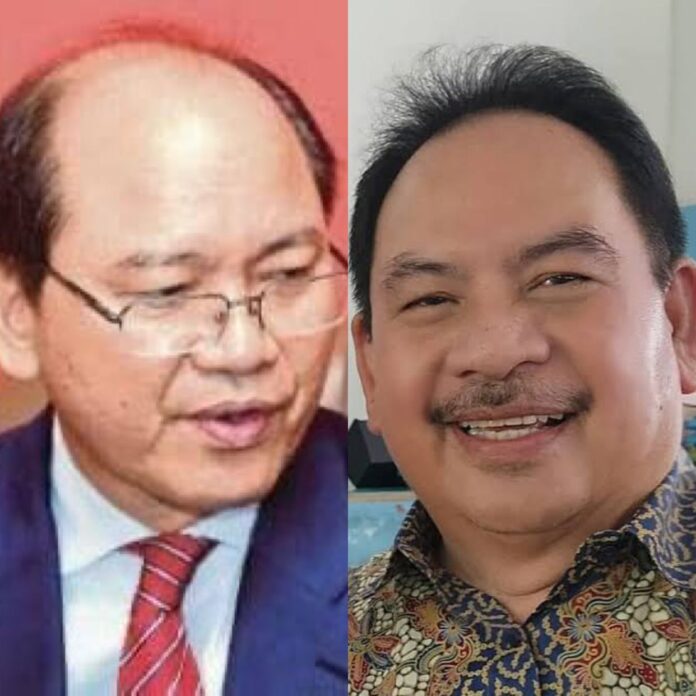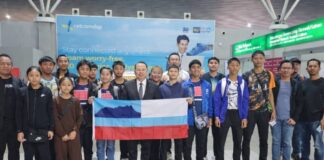By Lesaya L. Sorudim
KOTA KINABALU: As Sabah gears up for its next state election, few constituencies are drawing as much attention as Tamparuli—a vibrant, mixed seat known for its strong personalities and shifting political loyalties.
The outcome here could reflect the broader mood of the state: a contest between continuity and change, tradition and transformation.
The Gabungan Rakyat Sabah (GRS)-Parti Bersatu Sabah (PBS) stronghold may soon face an internal recalibration.
While incumbent assemblyman Datuk Jahid Jahim has long been seen as the face of PBS in Tamparuli, there are growing indications that the party may field a new candidate this time around.
Factors such as voter fatigue, internal renewal, or other factors and the desire to present a fresher image could lead PBS to introduce a newcomer to represent GRS in the constituency.
This potential shift opens a new chapter in Tamparuli politics. If PBS replaces Jahid, the election could become far more unpredictable—with local voters weighing between loyalty to the GRS coalition and curiosity toward new leadership.
The decision could also test whether the GRS-PBS alliance can maintain its grassroots influence without the veteran presence of Jahid.
Meanwhile, the opposition field appears crowded and diverse.
Datuk Seri Wilfred Madius Tangau of UPKO, a seasoned figure and Tuaran UPKO chief party adviser, may enter the race.
His national profile and long experience could attract moderate and urban voters, though his challenge will be convincing locals that his move from Kiulu to Tamparuli is rooted in genuine connection rather than political strategy.
Dr Gaim James Lunkapis of PKDM could bring the energy of a new-generation Sabah-first movement.
His candidacy would symbolise local empowerment beyond Peninsula-based coalitions, though PKDM’s limited structure may constrain its reach.
Still, his presence could reshape the vote dynamics — potentially acting as a spoiler or a coalition-builder.
From Warisan, Datuk Dr Joseph Lee stands as a strong professional voice.
Warisan continues to command support among voters seeking reform and a distinct Sabahan identity.
Dr Lee’s credibility and discipline could rally a reformist base, especially if GRS and PBS face internal divisions.
Edward Linggu of STAR, a former Tamparuli assemblyman and now a senator, also commands deep respect on the ground.
With STAR’s renewed focus on Sabah rights and autonomy, Edward could re-emerge as a strong contender, especially if local sentiment favours experienced local-born leadership.
STAR’s growing ties with PKDM, Warisan, and SAPP may also open the door to a new local-based bloc—a move that could reshape Sabah’s political balance.
A fresh yet sentimental name, Dr Julia Ongkili of Parti Impian Sabah (PIS), daughter of the late Tan Sri Dr James Ongkili, adds another layer to the contest.
While PIS remains small, Julia’s candidacy carries emotional weight, representing continuity of her father’s legacy and a generational call for integrity and renewal.
If all these names contest, Tamparuli could face a five- or six-cornered fight, a scenario that traditionally benefits the ruling coalition.
However, if PBS’s internal change leads to disunity or uncertainty, the race could swing in unexpected directions.
Opposition forces could gain traction if they manage to unite or strategically coordinate.
Ultimately, the real story of Tamparuli lies not just in who wins, but in how the local political forces evolve.
Will PBS’s renewal strengthen GRS or fracture its traditional support base?
Can opposition figures like Madius, Edward, and Dr Lee find common
ground?
And will smaller parties like PKDM, STAR, and SAPP forge a new Sabah-based alliance that mirrors Sarawak’s GPS model?
Whatever the outcome, Tamparuli remains the symbolic pulse of Sabah politics — where personality, party, and principle collide to shape the state’s political future.
—Lesaya L. Sorudim is a political observer and writer focusing on Sabah’s local governance and regional autonomy issues


